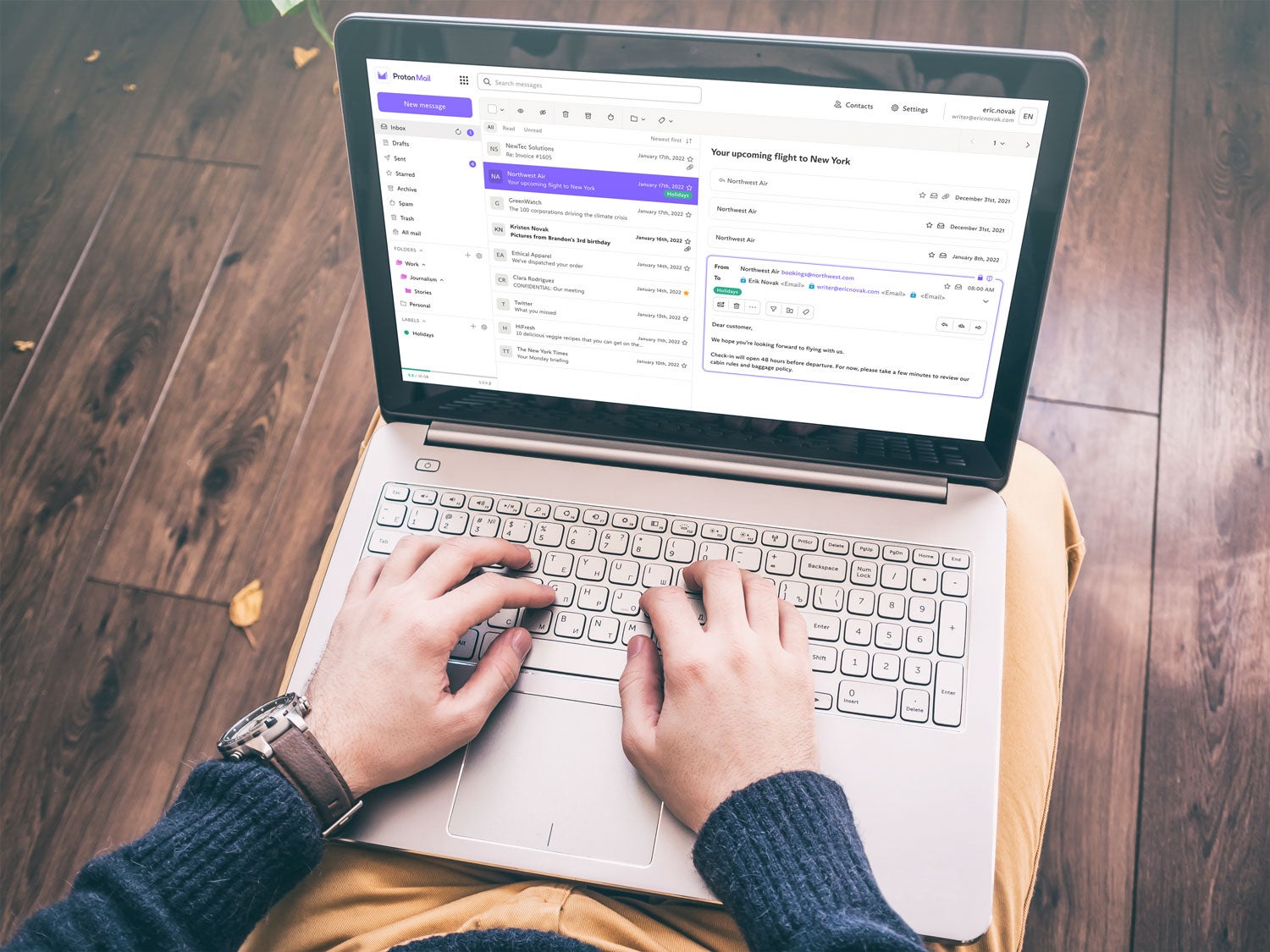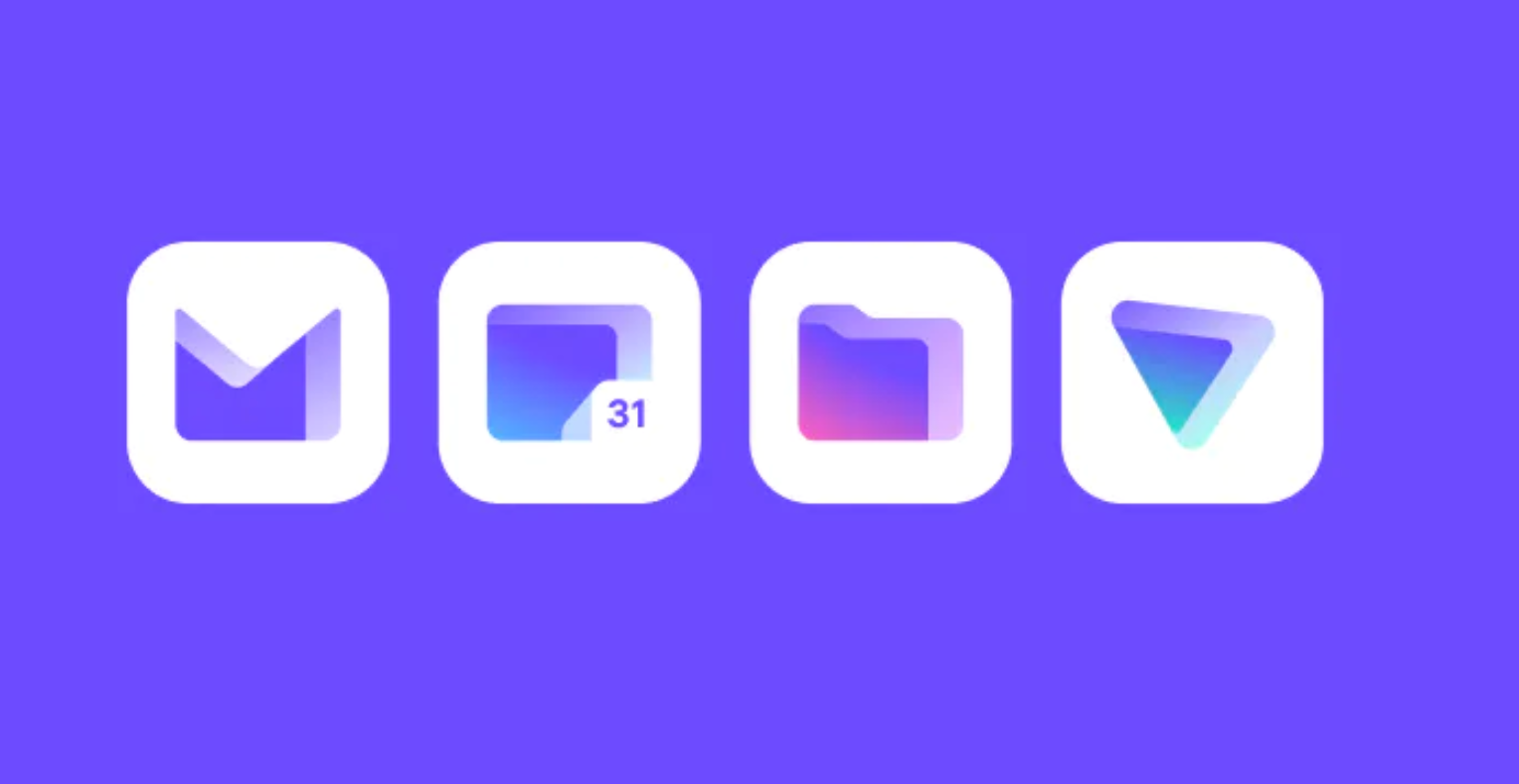Protonmail unifies Drive, Calendar, and VPN in attempt to compete with Apple and Google
The company, which is now known as Proton, is also rolling out new apps on iOS and Android

Your support helps us to tell the story
From reproductive rights to climate change to Big Tech, The Independent is on the ground when the story is developing. Whether it's investigating the financials of Elon Musk's pro-Trump PAC or producing our latest documentary, 'The A Word', which shines a light on the American women fighting for reproductive rights, we know how important it is to parse out the facts from the messaging.
At such a critical moment in US history, we need reporters on the ground. Your donation allows us to keep sending journalists to speak to both sides of the story.
The Independent is trusted by Americans across the entire political spectrum. And unlike many other quality news outlets, we choose not to lock Americans out of our reporting and analysis with paywalls. We believe quality journalism should be available to everyone, paid for by those who can afford it.
Your support makes all the difference.Protonmail is uniting its email service, VPN, calendar and online cloud storage into one package to create what it says is the “world’s first privacy-by-default ecosystem”.
The company, which is renaming itself Proton, has released new version of its web, mobile, and desktop applications that are now accessible through a new landing page. All the apps have also had new logos
All Proton services will have a free tier, with consumers and businesses paying for more advanced features and more storage. The free tier includes up to 1GB of storage and one Proton email address, as well as access to an encrypted calendar and the VPN; the Unlimited tier, which is the most expensive at €9.99 per month, offers more email addresses, calendars, 500GB of storage and faster VPN connections.

Proton is pitching this new upgrade as a compelling challenger to Google’s Drive, Gmail, and other workplace apps – having put out research that suggests customers are concerned about practises like email scanning, contact scanning, and location tracking.
Google stopped scanning email content in 2017, but it still scans emails to facilitate features like adding bookings and deliveries from emails directly into its calendar app.
Currently, Proton has its Mail app and VPN available on iPhones, with a Calendar app and the Drive app available on Android. While the iOS versions of the apps will not be available at launch, Proton says they will be coming a few months.
“For many years, the internet has been dominated by ad-based business models which abuse privacy and leverage our most intimate data for financial gain,” said Andy Yen, founder and CEO of Proton, in a statement.
“Proton’s mission is to provide an alternative and help build a just internet economy that works for users and all of society. The transformation from individual privacy services towards an integrated privacy ecosystem is an essential step toward building a complete replacement to Big Tech’s offerings.”
Proton is likely to face a challenge breaking through the established ecosystems of Apple and Google on their respective platforms. Lock-in through exclusive, platform only features such as iMessage on iPhones, has proved a key feature to keep users on one platform only.
Google has maintained a more open philosophy, collaborating with third-party apps for better functionality and partnering with competitors like Samsung, but its recent launch of its own hardware ecosystem – the Pixel Watch and the Pixel Buds Pro, alongside the new phone – might require locking down some features to keep users engaged.
Join our commenting forum
Join thought-provoking conversations, follow other Independent readers and see their replies
Comments